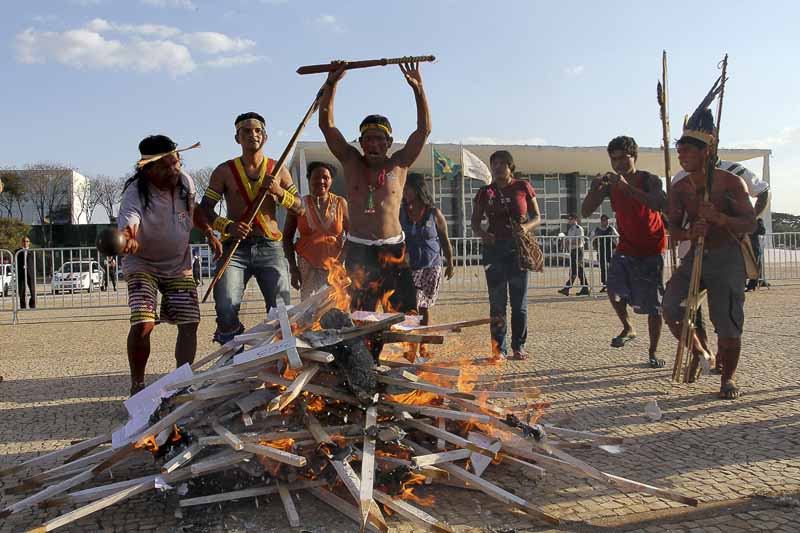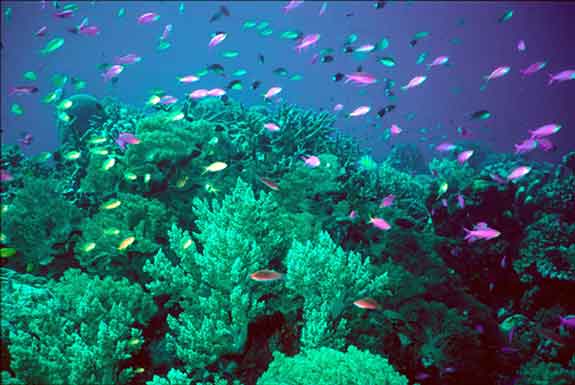
by Deep Green Resistance News Service | Oct 10, 2012 | Lobbying, Toxification
By Jeff Gray / The Globe and Mail
Chevron Corp. has lost a bid to have the U.S. Supreme Court consider its call for a worldwide ban on attempts to collect on a controversial $19-billion (U.S.) environmental judgment levelled against the company in Ecuador.
The decision comes with lawyers in Canada poised to battle in a Toronto courtroom next month over an attempt by the Ecuadorean plaintiffs to seize Chevron’s considerable Canadian assets to cover at least part of the massive judgment – a judgment the oil giant dismisses as fraudulent.
In the latest twist in a tangled legal saga, Chevron was trying to revive a preliminary injunction issued last year by a federal judge in New York. That injunction was later overturned on appeal. It purported to block the plaintiffs and their lawyers from trying to enforce the 2011 Ecuadorean court ruling not just in the U.S., but anywhere outside of Ecuador.
The U.S. Supreme Court refused on Tuesday to hear the case. It issued no reasons, as is customary, leaving the appeal court decision that quashed the injunction in place.
The news comes as lawyers for the plaintiffs – a group of villagers in the Amazon rainforest – have stepped up their campaign to force the oil company to pay for environmental damage from oil pollution in the Lago Agrio area of Ecudaor.
Chevron, based in San Ramon, Calif., has said it has virtually no assets remaining in Ecuador, and the plaintiffs have vowed to chase the company’s assets elsewhere. Their first stop, earlier this year, was Canada.
In May, they announced they had retained prominent Toronto lawyer Alan Lenczner, of Lenczner Slaght Royce Smith Griffin LLP, to try to have the judgment recognized by the Ontario Superior Court and force Chevron to fork over its Canadian assets, which include oil sands holdings. The plaintiffs have also filed a similar collection effort in Brazil.
In sprawling litigation in the United States, both sides have accused each of fraud and bribery in connection with the Ecuadorean ruling, allegations they both deny.
Chevron said Tuesday in an e-mailed statement that the company was disappointed with the decision but “will continue to defend against the plaintiffs’ lawyers’ attempts to enforce the fraudulent Ecuadorean judgment, and to further expose their misconduct in our pending [litigation] in New York and other proceedings.”
The plaintiffs’ say the ruling is the latest in a series of defeats for Chevron in U.S. courts.
“Chevron’s latest loss before the Supreme Court is an example of the company’s increasingly futile battle to avoid paying its legal obligations in Ecuador,” Aaron Marr Page, a lawyer for the Ecuadoreans, was quoted as saying in an e-mailed statement.
Read more from The Globe and Mail: http://www.theglobeandmail.com/report-on-business/industry-news/the-law-page/chevron-loses-bid-to-have-ecuador-case-heard-by-us-supreme-court/article4599707/

by Deep Green Resistance News Service | Oct 9, 2012 | Biodiversity & Habitat Destruction, Colonialism & Conquest, Indigenous Autonomy, Obstruction & Occupation
By Jeremy Hance / Mongabay
Construction on Brazil’s megadam, Belo Monte, has been halted again as around 150 demonstrators, most of them from nearby indigenous tribes, have occupied the main construction site at Pimental. Over a hundred indigenous people joined local fishermen who had been protesting the dam for 24 days straight. Indigenous people and local fishermen say the dam will devastate the Xingu River, upending their way of life.
“The renewed occupation of the project’s earthen cofferdams paralyzed construction works, while indigenous protestors seized the keys of trucks and tractors forcing workers to leave the strategic Pimental work camp on foot,” reads a press release from the NGO Amazon Watch. Around 900 workers were sent home.
This is the second occupation attempt in less than six months. Over the summer some 300 indigenous people sustained an occupation of the dam for 21 days, before breaking it off though little headway was made in talks with consortium building the dam, Norte Energia.
The Belo Monte dam, which would be the world’s third largest, has been plagued by controversy from its origin decades ago; the battle for the dam has been fought both in Brazil’s courts and on the international stage. If built, the dam will flood an estimated 40,000 hectares of present rainforest and could push some fish species to extinction. In addition, 16,000 people will be displaced according to the government, though some NGOs say the number is more likely double that.
Despite the impacts, the dam has been strongly supported by Brazilian President Dilma Rousseff, and every legal injunction against the dam has been overturned. Norte Energia has filed with a local court for repossession of the construction sties.
Indigenous groups say the construction of the dam is already imperiling their way of life, as the Xingu river becomes more difficult to navigate. They have also said they have no intention of leaving until Norte Energia meets their demands.
“We are witnessing the devastation of this land. The island of Pimental was completely destroyed, with a sole tree left standing, and the water is putrid. It is very shocking,” an protestor told Amazon Watch.
Dams are often described as ‘green’ energy source, however in the tropics they actually release significant methane emissions due to rotting vegetation. Although it has a shorter life than carbon, methane is a far more potent greenhouse gas.
From Mongabay: “Indigenous groups re-occupy Belo Monte dam in the Amazon“

by Deep Green Resistance News Service | Sep 23, 2012 | Biodiversity & Habitat Destruction
By Gaia Vince / BBC News
Global fish stocks are exploited or depleted to such an extent that without urgent measures we may be the last generation to catch food from the oceans.
It has been some time since most humans lived as hunter-gatherers – with one important exception. Fish are the last wild animal that we hunt in large numbers. And yet, we may be the last generation to do so.
Entire species of marine life will never be seen in the Anthropocene (the Age of Man), let alone tasted, if we do not curb our insatiable voracity for fish. Last year, global fish consumption hit a record high of 17 kg (37 pounds) per person per year, even though global fish stocks have continued to decline. On average, people eat four times as much fish now than they did in 1950.
Around 85% of global fish stocks are over-exploited, depleted, fully exploited or in recovery from exploitation. Only this week, a report suggested there may be fewer than 100 cod over the age of 13 years in the North Sea between the United Kingdom and Scandinavia. It’s a worrying sign that we are losing fish old enough to create offspring that replenish populations.
Large areas of seabed in the Mediterranean and North Sea now resemble a desert – the seas have been expunged of fish using increasingly efficient methods such as bottom trawling. And now, these heavily subsidised industrial fleets are cleaning up tropical oceans too. One-quarter of the EU catch is now made outside European waters, much of it in previously rich West African seas, where each trawler can scoop up hundreds of thousands of kilos of fish in a day. All West African fisheries are now over-exploited, coastal fisheries have declined 50% in the past 30 years, according to the UN Food and Agriculture Organisation.
Catches in the tropics are expected to decline a further 40% by 2050, and yet some 400 million people in Africa and Southeast Asia rely on fish caught (mainly through artisanal fishing) to provide their protein and minerals. With climate change expected to impact agricultural production, people are going to rely more than ever on fish for their nutritional needs.
The policy of subsidising vast fishing fleets to catch ever-diminishing stocks is unsustainable. In Spain, for example, one in three fish landed is paid for by subsidy. Governments, concerned with keeping jobs alive in the fishing industry in the short-term, are essentially paying people to extinguish their own long-term job prospects – not to mention the effect on the next generation of fishermen. Artisanal fishing catches half the world’s fish, yet it provides 90% of the sector’s jobs.
Protect depletion
Clearly, industrialised countries are not about to return to traditional methods. However, the disastrous management of the industry needs to be reformed if we are to restore fisheries to a sustainable level. In the EU alone, restoring stocks would result in greater catches of an estimated 3.5 tonnes, worth £2.7 billion a year.
Rather than having a system in which the EU members each hustle for the biggest quotas – which are already set far beyond what is sustainable – fisheries experts suggest individual governments should set quotas based on stock levels in their surrounding waters. Fishermen should be given responsibility over the fish they hunt – they have a vested interest in seeing stocks improve, after all – and this could be in the form of individual tradable catch shares of the quotas. Such policies end the tragedy of the commons situation whereby everyone grabs as much as they can from the oceans before their rival nets the last fish, and it’s been used successfully in countries from Iceland to New Zealand to the US. Research shows that managing fisheries in this way means they are twice as likely to avoid collapse as open-access fisheries.
In severely depleted zones, the only way to restore stocks is by introducing protected reserves where all fishing is banned. In other areas, quota compliance needs to be properly monitored – fishing vessels could be licensed and fitted with tracking devices to ensure they don’t stray into illegal areas, spot-checks on fish could be carried out to ensure size and species, and fish could even be tagged, so that the authorities and consumers can ensure its sustainable source.
The other option is to take humanity’s usual method of dealing with food shortages, and move from hunter-gathering to farming.
Already, more than half of the fish we eat comes from farms – in China, it’s as high as 80% – but doing this on an industrial scale has its problems. Farms are stocked with wild fish, which must then be fed – larger fish like salmon and tuna eat as much as 20 times their weight in smaller fish like anchovies and herring. This has led to overfishing of these smaller fish, but if farmed fish are fed a vegetarian diet, they lack the prized omega-3 oils that make them nutritious, and they do not look or taste like the wild varieties. Scientists are working to create an artificial version of omega-3 – current synthetic omega-3 versions are derived from fish oils.
Fish farms are also highly polluting. They produce a slurry of toxic run-off – manure – which fertilises algae in the oceans, reducing the oxygen available to other species and creates dead zones. Scotland’s salmon-farming industry, for example, produces the same amount of nitrogen waste as the untreated sewage of 3.2 million people – over half the country’s population. As a result, there are campaigns to ban aquaculture from coastal areas.
Farmed fish are also breeding grounds for infection and parasites that kill off large proportions of fish – escapees then frequently infect wild populations. Farmers try to control infestations with antibiotics, but usually only succeed in creating a bigger problem of antibiotic resistance.
Read more from BBC News:

by Deep Green Resistance News Service | Sep 19, 2012 | Biodiversity & Habitat Destruction, Climate Change
By Inter-Press Service
Limiting climate change to two degrees C won’t save most coral reefs, according to new, state-of-the-art research.
About 70 percent of corals are projected to suffer from long-term degradation by 2030 with two degrees C of warming, the first comprehensive global survey reported Sunday in the journal Nature Climate Change.
The planet will get far hotter than two degrees C based on current commitments by countries to reduce their greenhouse gas emissions, mainly from burning oil, gas and coal. Humanity is on course to heat up the atmosphere an average of three and even four degrees C, according to the Climate Action Tracker, an international scientific monitor. Those temperature levels are what most scientists consider “catastrophic”.
Global temperatures have risen an average of about 0.8C so far and already melted much of the Arctic and generated costly extreme weather events around the planet. Keeping that global average increase below two degrees is only a matter of “political will” not technology, said Bill Hare, director of Climate Analytics, one of the partners in the Climate Action Tracker.
If humanity wants to keep at least half of the remaining coral reefs, then global temperatures cannot rise to 1.5C. “Limiting global warming to 2 C is unlikely to save most coral reefs,” the paper reports.
“We must realise what is at stake as global temperatures rise,” said co-author Malte Meinshausen of School of Earth Sciences at the University of Melbourne.
“Countries must be as ambitious as possible in their emission reductions to give corals a chance,” Meinshausen told IPS.
Coral reefs are considered by many to be one of the life-support systems essential for human survival. For more than 2.6 billion people, seafood is the main source of protein. Corals act as the nurseries and habitat for many fish species, and are vital for up to 33 percent of all ocean species, according to the World Conservation Union (IUCN).
Reefs also provide vital shoreline protection from storms. Without reefs, for example, Belize would suffer 240 million dollars in damage from storms, according to one estimate.
This study used the very latest climate models and applied them to growing science about the impacts of rising temperatures and acidification levels projected in the decades to come, said co-author Simon Donner, a marine biologist and climatologist at the University of British Columbia.
The increasing ocean acid conditions appear to be reducing coral’s thermal tolerance, Donner said in an interview. Tropical corals have a narrow water temperature range in which they thrive. When water temperature rises only two or three degrees, they “bleach” or turn white.
Corals can survive this, but if the heat stress persists long enough – weeks instead of days – the corals can die in great numbers, as they did in 1998 when 16 percent of the world’s tropical corals died.
Emissions of greenhouse gases are not only warming the oceans, they have also made them 30 percent more acidic. The oceans and the atmosphere are intimately connected. When CO2 is released into the atmosphere from burning fossil fuels, some of that extra CO2 combines with carbonate ions in seawater, forming carbonic acid. This level of change in ocean chemistry has not happened in millions of years and is beginning to dissolve reefs.
Some corals will undoubtedly survive and some will adapt to the new conditions, although the changes are far more rapid than anything corals have ever experienced, said Donner.
“The bottom line is that humanity will lose the services that corals have provided for thousands of years,” he said.
Even at 1.5 C degrees of warming, only about half corals are likely to survive, the study found. That adds scientific weight to the small island nations’ and other countries’ call for a global target of 1.5 C, Donner said.
Every nation in the world officially agreed to keep global temperature increase below two degrees C at a U.N. climate meeting in Cancun, Mexico in 2010. An alliance of small islands and African countries had lobbied for the global target of less than 1.5 C due to the damages they are expected to suffer if temperatures rise above that mark.
Emissions must begin to decline this decade for either target so it is pointless to debate these targets right now, says Meinshausen. Once emissions are in significant decline, then how fast and how deep those cuts will have relevance for the final target, he said.
“I fear we’re going to miss our only chance to peak emissions this decade,” he said.
Read more from Inter-Press Service: http://www.ipsnews.net/2012/09/deeper-co2-cuts-needed-to-save-corals/
by Deep Green Resistance News Service | Sep 17, 2012 | Climate Change
By John Vidal / The Guardian
One of the world’s leading ice experts has predicted the final collapse of Arctic sea ice in summer months within four years.
In what he calls a “global disaster” now unfolding in northern latitudes as the sea area that freezes and melts each year shrinks to its lowest extent ever recorded, Prof Peter Wadhams of Cambridge University calls for “urgent” consideration of new ideas to reduce global temperatures.
In an email to the Guardian he says: “Climate change is no longer something we can aim to do something about in a few decades’ time, and that we must not only urgently reduce CO2 emissions but must urgently examine other ways of slowing global warming, such as the various geoengineering ideas that have been put forward.”
These include reflecting the sun’s rays back into space, making clouds whiter and seeding the ocean with minerals to absorb more CO2.
Wadhams has spent many years collecting ice thickness data from submarines passing below the arctic ocean. He predicted the imminent break-up of sea ice in summer months in 2007, when the previous lowest extent of 4.17 million square kilometres was set. This year, it has unexpectedly plunged a further 500,000 sq km to less than 3.5m sq km. “I have been predicting [the collapse of sea ice in summer months] for many years. The main cause is simply global warming: as the climate has warmed there has been less ice growth during the winter and more ice melt during the summer.
“At first this didn’t [get] noticed; the summer ice limits slowly shrank back, at a rate which suggested that the ice would last another 50 years or so. But in the end the summer melt overtook the winter growth such that the entire ice sheet melts or breaks up during the summer months.
“This collapse, I predicted would occur in 2015-16 at which time the summer Arctic (August to September) would become ice-free. The final collapse towards that state is now happening and will probably be complete by those dates”.
Wadhams says the implications are “terrible”. “The positives are increased possibility of Arctic transport, increased access to Arctic offshore oil and gas resources. The main negative is an acceleration of global warming.”
“As the sea ice retreats in summer the ocean warms up (to 7C in 2011) and this warms the seabed too. The continental shelves of the Arctic are composed of offshore permafrost, frozen sediment left over from the last ice age. As the water warms the permafrost melts and releases huge quantities of trapped methane, a very powerful greenhouse gas so this will give a big boost to global warming.”
From The Guardian: http://www.guardian.co.uk/environment/2012/sep/17/arctic-collapse-sea-ice




